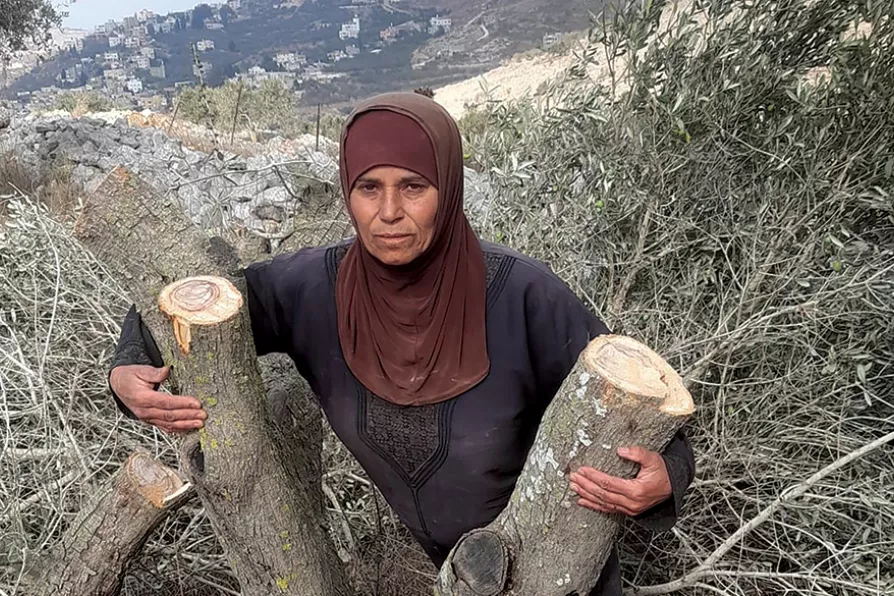Marco Rubio views 1945 as a defeat for the West, wants to revise the post-war order, while German ministers lead the standing ovation. SEVIM DAGDELEN reports

 DESPICABLE: Jamila next one of the olive trees cut down overnight
[Jenny Kassman]
DESPICABLE: Jamila next one of the olive trees cut down overnight
[Jenny Kassman]
EVERY October, when I tell people I am travelling with a group to the village of Burin in Palestine for the olive harvest, someone will respond — not really knowing what else to say — with “oh, how lovely! The weather will be nice and hot!”
In fact, in October the weather in the part of Palestine where we stay — the occupied West Bank — tends to be variable, with overcast and rainy days, particularly in the second half of the month.
However, our group from Britain and Ireland feels the heat in other ways — the heat generated by the burning of olive groves belonging to Palestinian farmers by Israeli settlers (who I prefer to call colonists) who also attack village homes.

For those who lived in Yanoun, its disappearance is not just a local tragedy, but a stark symbol of escalating violence, displacement and impunity across the occupied West Bank, says JANE HARRIES

On International Day of Solidarity with the Palestinian People, HUGH LANNING warns that the US-led “Comprehensive Plan” entrenches decades of Western complicity in Israel’s domination and denial of Palestinian land and rights

ANN CZERNIK looks back over the last two years of carnage that began with the unprecedented October 7 operation and considers the rhetoric from both sides in light of the massacre carried out by Israel that has united the world in horror

Olive oil remains a vital foundation of food, agriculture and society, storing power in the bonds of solidarity. Though Palestinians are under attack, they continue to press forward write ROX MIDDLETON, LIAM SHAW and MIRIAM GAUNTLETT









